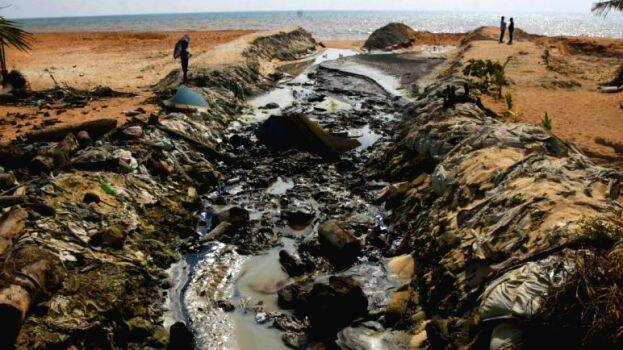

The recent oil spill at the Travancore Titanium Company in Thiruvananthapuram and the massive environmental problems caused by it are a good example of how industrial safety can be handled with immaturity and frivolity. It is surprising to find that the pipeline carrying the furnace oil to the boiler burst and five thousand litres of oil leaked out and yet no one noticed it. It was some of the coastal residents who informed the company about the oil leak. If the locals had not seen this, more oil would have flowed into the sea. Pollution on land and at sea would have been even worse. Despite the heavy security arrangements, one of the pump operators, supervisors or security personnel on duty said they knew about the oil pipe burst. What happened on Wednesday morning at the Titanium Factory was the kind of negligence that should never have happened in an industry like this that handles hazardous chemicals. The investigation and report submission may take place along the way. This is not the first time accidents have occurred here as a result of negligence.
The environmental threat posed by the furnace oil, that is spread over land and sea, is huge. The oil spill has spread across the coast from Shangumugham to Puthukkurichi. Fishing has been banned in these areas for two days. There are restrictions on the coast as well. The next steps will be taken after assessing the situation. Locals have been deprived of their livelihood due to the environmental problem caused by the oil spill. Pollution Control Board officials need to assess the damage and determine compensation to the locals as early as possible. The operation of the titanium factory has also been suspended in the wake of the accident. The company has also been instructed to remove the toxic soil in the region.
Sewage from the titanium factory is still being discharged into the sea through open canals. The furnace oil that leaked due to the burst pipe also reached the sea through this channel. Large scale plans were made to completely decontaminate the highly polluted Titanium factory. However, no pollution control systems were set up despite reports of stinking corruption scandals associated with it. Sewage from the factory is still flowing into the sea on a large scale, poisoning the coast. Despite constant complaints from locals and seafarers, the pollution problem posed by the factory has not yet been fully resolved. The poisonous smoke emerging from the factory is a health threat to the locals. Due to the proximity of the airport, the height of the chimney must be below a certain level. So the smoke coming from the plants stays in the atmosphere for a long time. It is most dangerous during the rainy season and winter. The Department of Civil Aviation has repeatedly called for the height of existing chimneys to be reduced. Pilots also frequently complain that the chimneys of Titanium are a hindrance to landing large aircraft. It was an uninhabited area when the Titanium factory was started. That is not the case now. It is a densely populated area with many institutions and colleges. There has been a lot of talk in the past about relocating the factory from the city centre. It has always been an obstacle to airport development.
In a country where there are very strict laws to prevent any kind of pollution, it is a mockery of the law to break the law from a government-owned institution. The problem is not just the pollution caused by the current oil spill. The effluent from the factory to the sea is also a major threat, polluting the coast. The District Collector and his entourage who came to see the impact of the oil spill have witnessed this. The government should look into why it still has to rely on technologies as it did in the past to discharge sewage, despite spending crores of rupees on pollution control activities. Taxpayers also have a right to know why authorities are trying to save the culprits, even though it has been proven that there were horrific embezzlement and corruption in the construction of the pollution control plant.